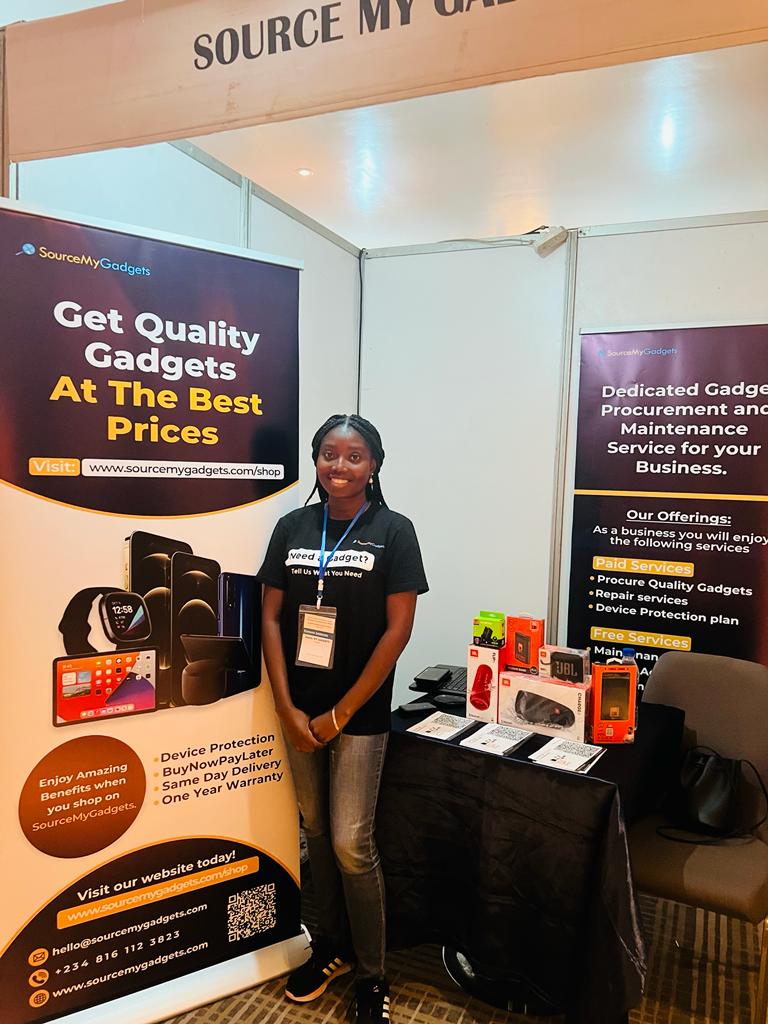
Breaking Barriers: Overcoming Obstacles and Thriving as a Woman Entrepreneur in Africa
Every day is a great day to celebrate the social, economic, cultural, and political achievements of women, but the International Women’s Day is an even better time to recognize their impact and reflect on the progress that still needs to be made. Women entrepreneurs are an essential component of economic development, particularly in Africa, where women-owned businesses contribute significantly to job creation and poverty reduction.
The Tony Elumelu Foundation, the leading philanthropy committed to empowering African entrepreneurs, to transform their businesses and communities, has been deliberate in its efforts to drive women’s inclusion and economic empowerment across the continent. Since the launch of the Tony Elumelu Foundation Entrepreneurship Programme in 2015, over 7000 women entrepreneurs have benefited from the programme’s business training, mentoring, access to resources and networks, and have received the non-refundable seed capital of $5,000. In this piece, we will explore the challenges and opportunities that African women entrepreneurs face, as well as the efforts of the Tony Elumelu Foundation to support and promote women’s entrepreneurship.
The state of women entrepreneurship in Africa:
Women entrepreneurship is on the rise in Africa, with more women starting and running businesses than ever before. The Global Entrepreneurship Monitor (GEM) reports that women in sub-Saharan Africa are more likely to start businesses than women in any other region of the world.
Despite the significant contributions of women entrepreneurs to Africa’s economic growth, they face several challenges, including limited access to finance, training, and markets. According to research, women in sub-Saharan Africa are 20% less likely than men to have a bank account and are 17% less likely to have access to formal credit. This barrier in access to finance makes it difficult for women to start and grow their businesses.
Based on our direct engagement with women entrepreneurs in Africa, we have compiled a list of some of the challenges that they have shared with us:
- Access to Funding: Women entrepreneurs in Africa often struggle to access funding to start or grow their businesses. This is due to a variety of factors, including lack of collateral, limited financial literacy, and discrimination. Studies show that women are less likely to receive loans than men, and when they do, they receive smaller amounts and pay higher interest rates.
- Access to Markets and Networks: Women may not have access to the same marketing and networking opportunities as men, which can make it challenging to establish business connections and partnerships.
- Cultural and Social Barriers: Women in Africa often face cultural and social barriers that make it difficult for them to start or grow businesses. These barriers include traditional gender roles, limited mobility, and discrimination. Women are also often expected to prioritize their family responsibilities over their work, making it difficult to devote the time and resources needed to build a successful business.
- Balancing Work and Family: Women in Africa often have to balance their work with their family responsibilities. This can make it difficult for them to devote the time and resources needed to start and grow a successful business. Women are often responsible for childcare, household chores, and caring for elderly family members, which can limit their ability to attend networking events, workshops, and training programs.
Opportunities for Women Entrepreneurs in Africa
Despite the challenges, there are many opportunities for women entrepreneurs in Africa. Here are a few examples:
- Agriculture: Agriculture is the backbone of many African economies, and women are the primary farmers in many communities. Women entrepreneurs can take advantage of this by starting businesses that support the agriculture sector, such as food processing, packaging, and distribution.
- Technology: The tech industry is growing rapidly in Africa, with startups in Kenya, Nigeria, and South Africa leading the way. Women entrepreneurs can take advantage of this by starting tech businesses that address local challenges, such as mobile payment systems or e-commerce platforms.
- Tourism: Africa is a popular tourist destination, with millions of visitors each year. Women entrepreneurs can start businesses that cater to tourists, such as restaurants, hotels, or tour companies.
The Tony Elumelu Foundation and women entrepreneurship:
The Tony Elumelu Foundation is committed to promoting women entrepreneurship in Africa by providing training, mentorship, and access to finance. The Foundation’s flagship programme, the Tony Elumelu Foundation Entrepreneurship Programme, has empowered over 18,000 entrepreneurs across Africa since its launch in 2015, with a specific focus on women entrepreneurs.
The TEF Entrepreneurship Programme provides selected entrepreneurs with a comprehensive training programme that covers essential business skills, including financial management, marketing, and sales. Participants also receive mentorship and access to a network of successful entrepreneurs and investors.
In addition to the Entrepreneurship Programme, the Tony Elumelu Foundation has launched several initiatives aimed at promoting women entrepreneurship in Africa and one of them is the Women Entrepreneurship for Africa (WE4A) program which aims to increase access to funding, market opportunities, knowledge enhancement and technical training for women entrepreneurs in Africa.
Impact and success stories:
The Tony Elumelu Foundation’s efforts to support women entrepreneurship in Africa have yielded impressive results. Since the launch of the Entrepreneurship Programme, women entrepreneurs have accounted for about 40% of the programme’s beneficiaries.
Here are some of the women entrepreneurs in the TEF Alumni Network creating impact in their communities:

Princess Adeyinka Tekenah runs ‘Happy Coffee’, an indigenous Seed to Cup Nigerian coffee company, improving the consumption and production of locally sourced coffee by bringing Fresh Brew Coffee to the cup of an average Nigerian. Currently, 90% of coffee consumed in Nigeria is imported, thereby creating opportunities within the coffee sector, where roast coffee market in Nigeria was equal to 681.60 million USD. The coffee market in Nigeria is forecasted to reach 4.62 billion USD (in retail prices), thus increasing at a CAGR of 18.13% per annum for the period between 2020-2025. With a $5000 seed grant in 2015, we have successfully designed 10 market-fit coffee products, established 3 Coffee Experience Centers, served over 30,000 cups of coffee, and pioneered a Coffee festival, all with a growing revenue of over $80,000 (cumulative). In the next 5 years, our goal is to grow our revenue to $ 2 million and expand our portfolio to 5 Nigerian cities and 2 countries, whilst boosting the state of our Coffee Value Chain participation.

Chioma Ogbudimkpa runs a fashion business known as Redbutton which focuses on the production of workwear for female professionals, fusing African aesthetics, eco-friendly materials, and art from all over the world. With every piece, the brand places emphasis on African stories, powerful women, and sustainability. Because the African woman is vibrant, the designer creates a balance between colors and texture, in interpreting strength and sophistication. Essentially, Redbutton seeks to project rare design innovation and modern African culture to the rest of the world. The brand’s tailoring is done in Nigeria and sold globally via redbuttonng.com and other local and international retail stores.

Jocelyn Agbo is the founder of ‘Farm On Wheels’, a social enterprise that works with smallholder rural farmers in hard-to-reach communities in Nigeria. They started operations in 2017 by meeting with smallholder farmers and community heads, involving them in the process of developing our model through surveys and town hall meetings. This enabled them to come up with a business model that provides the necessary agricultural resources a smallholder rural farmer needs to become gainfully employed and financially empowered within their communities. In 2017, they trained a few farmers in their communities and by 2018, they had a huge turnout of farmers for training in these communities. This gave them access to genuine farmers in these communities who have so far benefited from their training programs, extension services, and market linkage.

Lucy Mary Athieno is the founder of Eco-Pads Uganda which came as a solution of making reusable and affordable menstrual pads used for up to a year at $4. They also work on training girls, senior male and female teachers on menstrual health management, and sexual reproductive health. The business idea was born out of her concern for schoolgirls who miss 4-5 days of school monthly due to the lack of affordable menstrual materials in Uganda (IRC 2013).

Charity Nyakundi is another African entrepreneur who is making great strides in the world of art, fashion, and design. The name of her business is Porabe Designs (meaning ‘Clean’) and she deals in artisan clothing; they design clothes and make the clothes and fabrics themselves.
These women amongst others, do incredibly well in their various business sectors, creating jobs, social and economic impacts in their different communities.
Women entrepreneurship is by far a critical component of economic development in Africa, and the Tony Elumelu Foundation is leading the way in promoting and supporting women entrepreneurs across the continent. Through its various programmes and initiatives, the Foundation is helping to break down the barriers that limit women’s access to finance, training, and markets and creating opportunities for women to start and grow successful businesses.
On this International Women’s Day, let us celebrate the achievements of women entrepreneurs in Africa and continue to support their efforts to drive economic growth and development.
